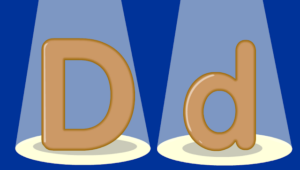Capital letter rules in English
There are two different ways that any letter in the alphabet can be written: lower case and capital letters (upper case). Capital letters are used at the beginning of a sentence and they are used to show proper nouns, such as the name of a person, place, or thing.
The capital letter is the forefront of any sentence, any formal title, or anything that you deem important. Without a capital letter, you would not know where a sentence begins, what is important in a document, or what is a proper noun or not. It is simply a universal rule that all sentences and proper nouns begin with a capital letter in the English language.
Here are some grammar rules that go along with capital letters:
1. Always capitalize the first word in any sentence.
2. Always capitalize the pronoun “I” in any sentence.
3. Always capitalize proper nouns and proper adjectives that are formed from a proper noun in any sentence.
4. Always capitalize the first word of a quoted sentence.
As you get more in depth with grammar studies, there are other rules and guidelines for capitalizing letters. However, as you are learning letters, sentence structures, and so on, you will learn what needs to have a capital in front of it and what doesn’t.
Here are some examples of capitalization with the rules above:
Capitalization for the first word in any sentence:
- We love to go to the park.
- Yesterday, we went to the park.
- How did you like playing at the park?
- One day, I want to live next to the park.
Capitalization of the pronoun “I” in any sentence:
Will you go with John and I to the park?
- I want to go to the park today.
- Yesterday, I went to the park.
- When can I go to the park?
Capitalization of proper nouns and adjectives in any sentence:
- Today, John was at the park.
- In the morning, we are going to see Aunt Jane.
- Every holiday, Uncle Joe comes over to our house.
- Do you think Sam can come to the park with me?
Capitalization of the first word of a quoted sentence.
- He said, “Treat her as you would your own daughter.”
- She said, “Wow, what a dress!”
- “Look out!” she screamed. “You almost ran into my child.”
- She said, “Are you kidding?”
As you can see, it is pretty easy to get the hang of different capitalization rules when it comes to these three simple rules. Just remember that the first word of every sentence gets capitalized, the pronoun “I” gets capitalized, and proper nouns (like first names) get capitalized.
